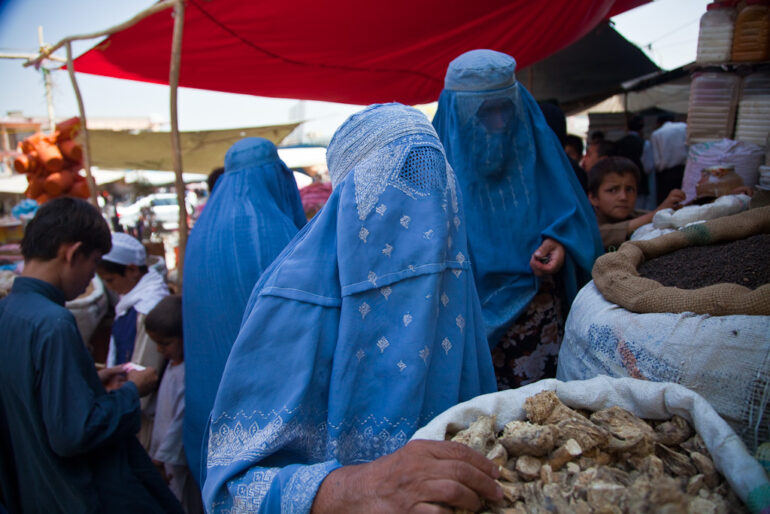Taliban education ban fuels plight of child brides
According to UN Women child marriages have increased by 25% since the rise of Koranic students. Faced with the risk of being married off to a fighter, families choose to arrange marriages. The broken dreams of Amina and Musal, and the "humanitarian, educational and professional" crisis of an entire nation.
Kabul (AsiaNews) - Amina (the name is fictitious) was attending middle school when the Taliban came to power in Afghanistan, depriving her after a few weeks of her right to education following the rule that banned girls over the age of 12 from attending school.
The decision, she told reporters of Radio Free Europe (Rfe/Rl), cut short her dream of continuing her schooling and laying the foundations for a future job. Hence the choice of the family from the central province of Maidan, a few months later, to force her into marriage by giving her - as a child - to a 37-year-old man.
Amina was 'traumatised and sick' when she was told of the family's plan, which 'risked - as she herself, now 16, says - financial ruin after the Taliban's seizure of power'. Her husband paid a 'walwar' - a premarital tax given to the bride's parents - amounting to about USD 12,000, a common practice in Afghanistan and an incentive for parents to marry off their daughters at a young age.
Amina is among the thousands of underage girls forced into marriage since the fall of the Western-backed government in August 2021, while the Taliban ban on education has caused a spike in early and child marriages, against a backdrop of humanitarian, educational and professional crisis.
Like her, Musal (her name is also fictional) was 15 years old when her family betrothed her to an older man. Now 17, the girl dreamed of becoming a doctor but ended up as a wife under duress from her parents, who often prefer to arrange marriages in the face of the risk of seeing them united with a Taliban fighter, an alternative they consider far worse.
According to UN Women, the UN agency for gender equality and women's empowerment, child marriages have increased by about 25% since the rise of Koranic students.
The drama of child brides is directly linked to the school emergency and the decision taken by the Taliban, in the aftermath of their rise to power, to ban girls over the age of 12 from school. A decision that has now resulted in at least 1.5 million schoolgirls being denied the right to education, leaving them without hope for the future.
Coinciding with the 'symbolic date' of one thousand days - and three billion hours - of schooling lost for young girls, Unicef appealed to the international community, warning that 'no country can progress' when 'half its population is left behind'. And in order to be able to study they have to resort to 'secret schools' at the risk of their lives.
Catherine Russell, Director-General of the UN Children's Fund, explains that 'for 1.5 million girls, this exclusion' is not only a 'blatant violation' of their right to education, but also results in 'increasingly scarce opportunities and deteriorating mental health'.
"Children's rights, especially those of girls" cannot be "hostage" to policies or visions linked to ideology, adds the expert, according to whom "their lives, futures, hopes and dreams hang in the balance".
Education, she concludes, "not only provides opportunities, but also protects girls from the scourge of early marriages", which is why she appeals for "all" children and young people, regardless of gender, to be able to "return to education immediately".
A concern also shared by the activists of Human Rights Watch (HRW), according to whom Afghan society and the country itself will "never fully recover" from the loss of such a large number of future professionals.
This is all the more true in a nation where there was already a low literacy rate among young people, and among women, with the Taliban being accused by the UN of imposing a sort of "gender apartheid" and their government a "graveyard of buried hopes".
This is why some of them, the bravest ones, or in any case those who do not resign themselves to the current reality, turn to "clandestine" schools hidden from Koranic students; the aim is to be able to receive a minimum of education, risking their lives for this in facilities with "limited resources" for teachers and materials.
11/08/2017 20:05







.png)










